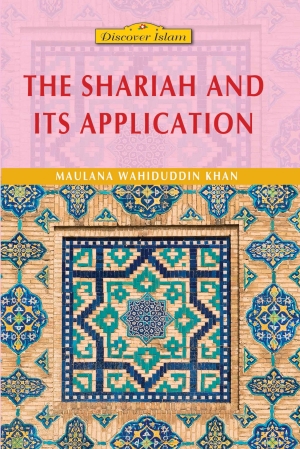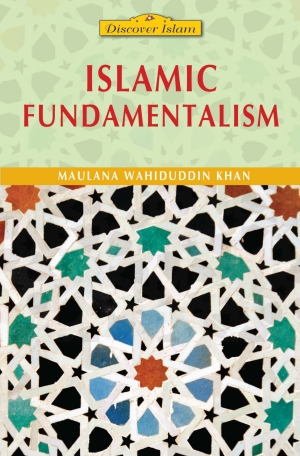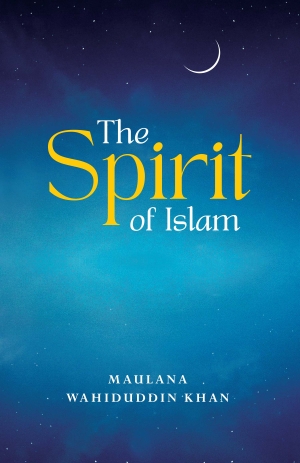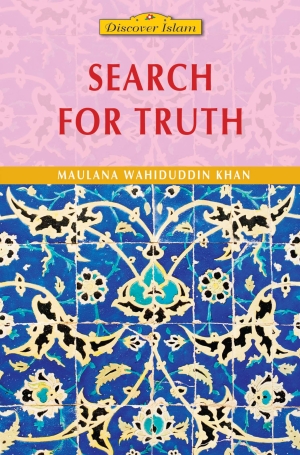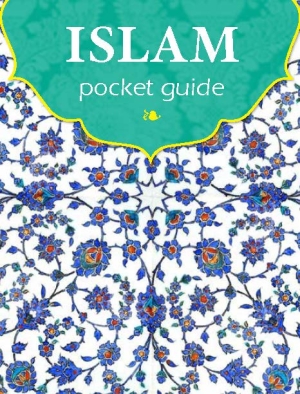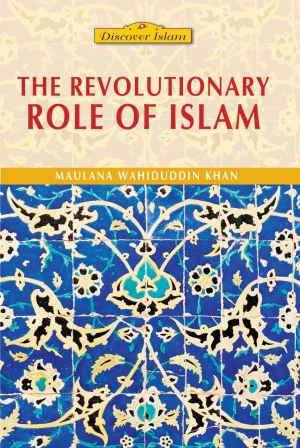Today, there are many misconceptions prevalent about Islam. One reason for such misconceptions is that as time went by, self-styled interpretations of the Quran and Sunnah gradually placed a veil over the original content of these texts. A time came when the original Islam was completely obscured from view. The wrong, artificial interpretations took the place of revealed guidance, and people mistakenly took the misconceptions in Islam to be the real Islam.
In the early phase of Islam, people derived their religion directly from the Quran and the sayings and actions of the prophet Muhammad; therefore, their association with the original Islam remained intact. However, the interpretations and explanations of later days served only to obscure the original teachings. As a result, the natural beauty of Islam disappeared over the centuries. The Quran and Sunnah now turned into relics instead of being instruments of guidance. Thus the religion came to be based on latter-day interpretations and explanations instead of the original scriptures.
To reveal the true face of Islam as it is, we must take an objective view of each misconception, judging them in the light of original Islamic sources rather than by the conduct of Muslims. For this, we need to rediscover Islam through its sources—the Quran, the word of God, and the Sunnah, the sayings and actions of the prophet Muhammad. For any study of Islam to be objective, a distinction must be made between the source of Islam and the practice of Muslims.
Featured Articles
FAQs
In a hadith, the Prophet Muhammad, may peace be upon him, observed: My generation is the best one, then the second generation, and then the third generation. (Sahih Muslim, Hadith No. 2533)
This means that Islamic virtue was at its peak in the first generation and that there was a decline in righteousness through the second and third generations. This stage is known in the history of Islam as the period of the Prophet's companions and the period of the Prophet's Companions' companions.
There is nothing mysterious about it. Degeneration, a law of nature that applies to every group, set in after the first generation itself. By the third generation, the roots of Islam had weakened and by the fourth generation, the characteristics of the first generation had been considerably diluted.
This process went on until after a few centuries that period commenced when we do find individuals in considerable number who had imbibed the true spirit of Islam, but society on the whole was found drastically lacking in the features of the early Islam. This state of affairs is entirely in accordance with the prophetic prediction:
“Islam began as a stranger. And, finally, it will again become a stranger. Let, then, the strangers be blessed” (Sahih Muslim, Hadith No. 145).
But it will never happen that all Muslims A to Z abandon Islam. Rather, according to the hadith, there will be many individual Muslims who will remain in the original religion in every age. The Prophet of Islam said, “Verily, my nation will split into seventy-three sects; all of them are in the Hellfire except for one denomination.” They said, “Who are they, O Messenger of God?” The Prophet said, “Those who follow my way and my Companions.” (Sunan al-Tirmidhi, Hadith No. 2641)
In this hadith, there is a clue to discover the true face of Islam, that is to study the Quran and Sunnah and biographies of the companions. All these three sources are preserved. One who wants to find the true face of Islam and follow it, needs only to refer to these sources.
Source: Islam Rediscovered
An important aspect of the true face of Islam is the right concept of God and the purpose behind man’s creation and his relation with the universe.
The first thing the Prophet has told us is that there is a God of this universe. He is the one and only God and has no partner in any capacity. He is Almighty and He is the controller of all the happenings in the Universe. Here I would like to quote a verse from the Quran which expresses fully and succinctly the Islamic concept of God:
“God: there is no deity save Him, the Living, the Eternal One. Neither slumber nor sleep overtakes Him. To Him belongs whatsoever is in the heavens and whatsoever is on the earth. Who can intercede with Him except by His permission? He knows all that is before them and all that is behind them. They can grasp only that part of His knowledge which He wills. His throne extends over the heavens and the earth; and their upholding does not weary Him. He is the Sublime, the Almighty One! (2:255)
Other matters explained by God's Prophet are the purpose of man's creation and His relation with the universe. He made it clear that since man was born to be tested, he had been granted freedom of action and God had conveyed to him His Will. Now the Lord wants to see who obeys His will and who does not. This world is, in fact, our field of action where we have been placed to take our test. A time has been fixed for this test. The time for an individual is the duration of his lifespan, and the time for entire humanity will extend till doomsday. After that the Lord of the universe will gather all men and women together and will reward or punish them in accordance with their deeds. And then those who pass this test will be rewarded with paradise and those who fail will be sent to Hell. This will take place in the life Hereafter.
The present world is the beginning of our life and the Hereafter will be our final destination. In this way God has made us aware of our future. This future world has been kept hidden from our eyes, which was necessary if we are to be tested here. But when this testing period is over, this hidden world will appear before us with the same clarity as this present world is visible to us now. We will see this life only after death.
Understanding this, we should strive in this world of test, so we are held deserving of Paradise in the Hereafter by God Almighty.
Source: The True Face of Islam
Contrary to common belief, Islam does not teach extremism. Islam actually teaches its adherents to follow the mean or the balanced path. In the fourth chapter of the Quran the following injunction has been given:
“Do not go to excess in your religion.” (4:171)
The same point has been made in a hadith. The Prophet of Islam observed:
“You should restrain yourselves from committing excesses (ghulu) in religion. For it was due to their having gone to extremes in religion that the previous communities were destroyed.” (Sunan Ibn Majah, Hadith No. 3029; Musnad Ahmad, Hadith No. 3248)
Ghulu means extremism. The way of extremism is wrong, whatever the circumstances, for it goes against the spirit of religion. Indeed, it is proneness to extremism, which at times culminates in war and violence. Those who suffer from extremist tendencies remain dissatisfied with the path of moderation, since this strikes them as being far from the ideal. That is why they so easily incline towards violence, and are ever ready to open hostilities in the name of achieving their objectives.
Moderation, which is the opposite of extremism, is closely interlinked with peace. When people possess the virtue of moderation, they necessarily think in terms of peace and will engage in their struggle in a peaceful manner. Where there is moderation there is peace, and vice versa.
According to a Hadith, the Prophet Muhammad observed: The moderate action is the best of all actions. Hazrat Ali advised the people: ‘Adopt the middle path.’ (Tafsir Qurtubi, 2/154)
The middle path means the path of moderation. One instance of it can be seen in the following verse of the Quran:
“Be neither miserly nor prodigal, for then you should either be reproached or be reduced to penury.” (17:29)
The same point, worded differently, has been made in another verse which characterizes “the true servants of the Merciful” as “those who, when they spend, are not extravagant and not niggardly, but maintain a just balance between those extremes” (25:67).
According to this verse, moderate spending means neither lavishness nor miserliness but rather a balanced expenditure, which will make life much easier to lead. In the same way, as regards optional fasts, prayers, etc., a middle path is desirable for man, as this enables him to maintain such a pattern of behaviour over a long period of time.
The middle path, to put it differently, is the non-emotional way. If a man loses his mental balance when confronted with any difficult situation in life, he goes to one extreme or the other. But if he keeps his feelings under control, he will be able to determine the proper course of action by giving it ample thought. A well-considered deed is always a moderate one. One who does not follow a moderate path will exceed all bounds both in friendship and in enmity. He will also be given to undue optimism and pessimism in respectively positive and negative situations, and will unnecessarily regard some individuals as too bad and others as too good. However, it is the verdict of nature that in this world a moderate approach in life always succeeds, while taking the path of extremes inevitably leads to failure.
So far as Islam is concerned, it is an entirely tolerant religion. Islam desires peace to prevail in the world. The Quran calls the way of Islam ‘the paths of Peace’ (5:16). The state of peace can never prevail in a society if a tolerant attitude is lacking in the people. Tolerance is the only basis for peace; in a society where tolerance is absent, peace likewise will be non-existent.
Source: The True Face of Islam


